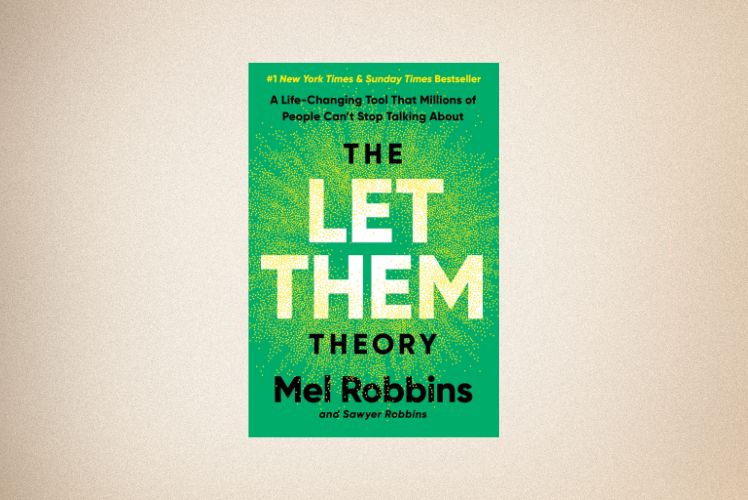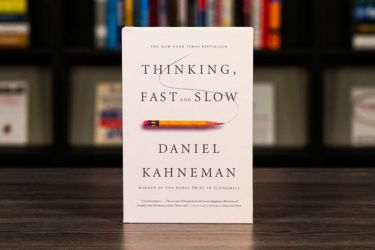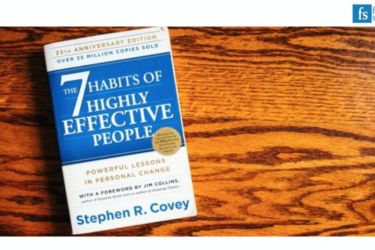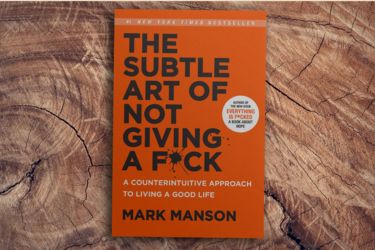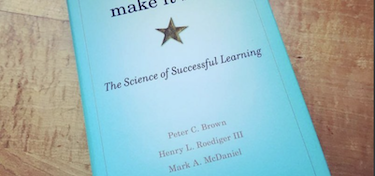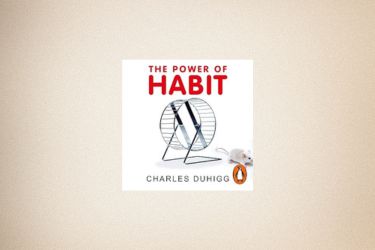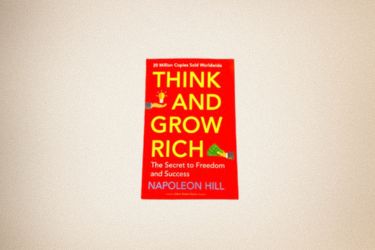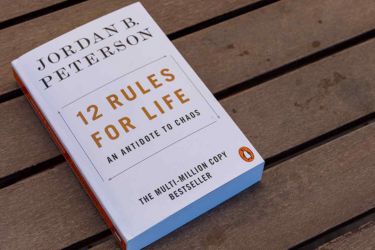Mel Robbins has delivered another thought-provoking entry to the self-help genre with "The Let Them Theory," a book that centres around two simple yet powerful words that promise to transform how we navigate relationships and personal boundaries. This self-help book teaches readers to reclaim their power by releasing the need to control others' actions, thoughts, and emotions, whilst redirecting that energy towards personal growth and authentic living.

The premise is refreshingly straightforward: when we stop managing everyone else's behaviour and choices, we discover we have far more control over our own lives than we initially realised. Robbins combines personal anecdotes with research-backed insights to present a framework that balances "letting them" be who they are with "letting me" focus on what truly matters in our own journey.
What sets "The Let Them Theory" apart from other books in the self-help genre is its practical approach to acceptance without resignation. Rather than simply telling readers to give up on influencing their environment, Robbins provides a nuanced understanding of when to engage and when to step back, making this book particularly relevant for anyone struggling with boundary-setting and emotional exhaustion from trying to control outcomes beyond their influence.
Key Takeaways
- The Let Them Theory helps readers stop wasting energy on controlling others and redirects focus towards personal empowerment and growth
- Mel Robbins combines personal stories with medical research to create a practical framework for better relationships and reduced stress
- The book offers a balanced approach between accepting others as they are whilst taking meaningful action in your own life
Summary of The Let Them Theory

The Let Them Theory centres on releasing control over others and redirecting energy towards personal empowerment. This mindset shift transforms how we approach relationships, stress, and personal development through simple yet powerful principles.
Core Principles of Let Them
The foundation of Mel Robbins' theory rests on two simple words: "let them." We use this phrase to step back when others make choices we cannot control.
The core principle involves detaching from outcomes that depend on other people's actions. When someone disappoints us, we say "let them" instead of fighting their decisions.
Key principles include:
- Releasing control over others' behaviour
- Focusing energy on our own choices
- Accepting that we cannot change people
- Using "let them" as a mental cue
This self-help approach works because it shifts our attention from external factors to internal ones. We stop wasting mental energy on things outside our influence.
The theory teaches us that trying to control others creates stress and frustration. When we let them make their own choices, we free ourselves from unnecessary burden.
The Mindset Shift Explained
The mindset shift moves us from external control to internal focus. We learn to recognise when we're trying to manage others instead of managing ourselves.
This acceptance-based approach requires practice. We must catch ourselves when we start controlling behaviours and redirect that energy inward.
The shift involves:
- Recognising control patterns
- Choosing response over reaction
- Building emotional boundaries
- Practising self-awareness
The motivational speaker explains that this mindset change reduces rumination and comparison. We spend less time worrying about others' opinions and more time on our goals.
When we adopt this thinking, we develop stronger emotional intelligence. We understand the difference between what we can and cannot influence in our relationships.
Impact on Personal Growth
Personal growth accelerates when we stop trying to fix everyone else. We have more mental space for developing our own skills and pursuing our ambitions.
The Let Them Theory promotes growth through:
- Reduced people-pleasing behaviours
- Increased self-confidence
- Better boundary setting
- Enhanced emotional regulation
This approach helps us build resilience. We become less affected by others' moods, decisions, or criticisms because we're focused on our own path.
Our relationships improve when we stop trying to change people. Others feel more accepted, and we experience less conflict and disappointment.
The theory supports long-term personal development by teaching sustainable habits. We learn to channel our energy productively rather than waste it on futile control attempts.
Mel Robbins' Background and Motivation

Mel Robbins built her career as a trusted voice in personal development through years of speaking, writing, and research. Her work stems from real struggles with control and people-pleasing that many of us face daily.
Mel Robbins as a Motivational Speaker
Mel Robbins stands as one of the world's most recognised experts on motivation and confidence. She's a New York Times bestselling author who has helped millions through her practical approach to self-help.
Her background includes extensive work in psychology and personal development. Robbins doesn't just share theories - she offers tools we can use straight away.
Key credentials include:
- Multiple bestselling books on motivation
- International speaking engagements
- Research-backed methods for behaviour change
- Focus on actionable strategies rather than abstract concepts
She built her reputation by addressing real problems that affect our daily lives. Her speaking style cuts through complicated psychology to deliver clear, usable advice.
Inspiration Behind the Book
The Let Them Theory emerged from Robbins' own experiences with trying to control others. She recognised that we waste enormous energy attempting to manage things beyond our influence.
Robbins observed how people become drained by others' opinions and expectations. This led her to develop the simple yet powerful "let them" approach.
The book addresses common struggles:
- People-pleasing behaviours
- Workplace boundary issues
- Family relationship stress
- Social media pressure
Her motivation centres on helping us reclaim our energy. Rather than fighting against what others do, she shows us how to focus on our own responses and choices.
The Balance of Let Them and Let Me

The "Let Them" philosophy works best when paired with its companion concept: "Let Me." This balance creates a framework where we release control over others whilst simultaneously reclaiming our personal power and agency.
How Let Me Complements Let Them
The "Let Me" principle serves as the empowering counterpart to letting go. When we stop trying to control others' actions and opinions, we create space to focus on our own choices.
Let me becomes our declaration of personal agency. We might say "let me pursue my goals" or "let me set my boundaries." This shift redirects our energy from managing others to managing ourselves.
The balance prevents us from becoming passive. Simply letting others be whatever they want could lead to doormat behaviour. The "Let Me" component ensures we maintain our voice and needs.
We can let them have their opinions whilst we let ourselves make different choices. We can let them express their emotions whilst we let ourselves respond appropriately rather than react.
This dual approach creates healthy relationships. We respect others' autonomy whilst protecting our own.
Fostering Agency and Empowerment
Personal growth happens when we embrace both sides of this balance. Letting go of what we cannot control frees up mental energy for what we can influence.
Agency means recognising our power to choose our responses. We let them behave as they will, but we let ourselves decide how to engage or disengage.
Personal empowerment grows stronger when we stop wasting effort on changing others. We redirect that energy toward our own development and goals.
The practice builds confidence. Each time we choose "let me" over trying to control others, we strengthen our sense of personal power.
We develop better decision-making skills. Without the distraction of managing others, we can focus on our own path and priorities.
Acceptance and Letting Go in Practice

Robbins shows us how acceptance works in real relationships and daily interactions. When we learn to let go of controlling others whilst setting proper boundaries, we stop people-pleasing behaviours that drain our energy.
Understanding Acceptance in Relationships
Acceptance doesn't mean we agree with everything people do. It means we recognise that others will make their own choices regardless of our preferences.
When someone cancels plans last minute, we can accept this is how they operate. We don't waste energy trying to change them or taking it personally.
True acceptance involves:
- Recognising people's patterns without trying to fix them
- Separating their choices from our self-worth
- Responding rather than reacting emotionally
Many of us struggle with acceptance because we believe caring means controlling. Psychology research shows this creates more stress, not better relationships.
We can care about someone whilst accepting they might make decisions we dislike. This shift reduces our frustration and helps us respond more thoughtfully.
Letting Go of Control
Letting go requires us to acknowledge what we cannot change about other people. We often exhaust ourselves trying to influence outcomes beyond our reach.
Control feels safe, but it's mostly an illusion. Others will behave according to their own values and circumstances, not our expectations.
Areas where we commonly try to control others:
- How they spend their money
- Their career choices
- When they respond to messages
- Their relationships with other people
When we release this need to control, we free up mental energy for our own growth. We stop monitoring other people's behaviour constantly.
The practice starts small. We let the colleague who's always late continue being late without commenting. We allow family members to make choices we wouldn't make.
The Role of Boundaries
Boundaries protect us without attempting to control others. They define what we will and won't accept in our relationships.
People-pleasing often stems from weak boundaries. We say yes to avoid disappointing others, then feel resentful about our choices.
Healthy boundaries look like:
- "I won't discuss work during family meals"
- "I need 24 hours' notice to change plans"
- "I don't lend money to friends"
Setting boundaries isn't about punishing others. It's about creating clear expectations that protect our wellbeing.
We communicate our limits calmly and follow through consistently. Others may not like our boundaries, but we let them have their feelings about it.
This approach stops the cycle of over-giving and resentment that damages relationships.
Application of The Let Them Theory
The Let Them Theory provides concrete methods for handling difficult people and situations whilst building personal empowerment. These strategies help us reclaim our agency and reduce stress in relationships, work, and daily interactions.
Practical Strategies for Everyday Life
We can apply the Let Them Theory through simple mental shifts that create immediate relief. When someone criticises our choices, we practise saying "let them think that" instead of defending ourselves.
Daily implementation looks like this:
- Let them have their opinion about your decisions
- Let them be upset without trying to fix their emotions
- Let them make their own mistakes
- Let them choose their own path
The companion "Let Me" concept ensures we maintain our personal growth. We say "let me set boundaries" or "let me focus on my goals" to balance acceptance with action.
This approach works particularly well with family dynamics. When relatives question our life choices, we can let them worry whilst we pursue what matters to us.
Key motivation comes from recognising that we waste enormous energy trying to control others' reactions. By redirecting this energy toward our own responses, we experience genuine personal empowerment.
Transforming Relationships
The theory revolutionises how we handle conflict and connection with others. Instead of trying to change our partner's habits, we let them be themselves whilst choosing our own responses.
In romantic relationships, this means:
- Letting them process emotions at their own pace
- Stopping attempts to "fix" their problems
- Allowing them space for their interests
With friendships, we can:
- Let them make social choices without guilt
- Accept their communication style
- Stop taking their moods personally
This self-help approach reduces the resentment that builds when we constantly try managing others' behaviour. We gain agency by focusing on what we actually control.
The method doesn't mean becoming passive. We still communicate our needs clearly. However, we release attachment to specific outcomes.
When friends cancel plans repeatedly, we let them be unreliable whilst we decide how much energy to invest. This creates healthier boundaries naturally.
Work and Leadership Usage
Professional environments offer countless opportunities to apply these practical strategies. We can let colleagues have their work styles whilst maintaining our own standards and productivity.
Common workplace applications include:
- Letting team members approach projects differently
- Allowing bosses to have unrealistic expectations without absorbing their stress
- Stopping attempts to control office politics
For leaders, the theory means:
- Letting employees make mistakes and learn
- Releasing micromanagement tendencies
- Focusing on results rather than methods
This approach builds stronger teams because people feel trusted and respected. Our personal empowerment grows when we stop exhausting ourselves trying to manage everyone else's performance.
The motivation shifts from controlling outcomes to creating conditions for success. We set clear expectations and let others choose their level of engagement.
When dealing with difficult clients, we let them be demanding whilst we decide our boundaries. This prevents burnout and maintains professional relationships without sacrificing our wellbeing.
Strengths and Critiques of the Book
The Let Them Theory receives high marks for making complex psychological concepts easy to understand, though some question whether its core message offers enough depth for the self-help genre. Critics and readers alike debate the book's balance between accessibility and substance.
Praise for Simplicity and Accessibility
The book's greatest strength lies in its straightforward approach to personal development. Robbins transforms complicated psychology into a simple two-word phrase that anyone can remember and use.
Many reviewers highlight how accessible the content feels. We can see this reflected in Oprah Daily naming it one of the best self-help books of 2025. The writing style makes readers feel like they're getting advice from a trusted friend.
Key accessibility features include:
- Simple language that avoids jargon
- Personal stories that readers relate to
- Practical examples from real life
- Clear action steps
The book's research foundation adds credibility to its claims. Robbins spent two years studying the effectiveness of her theory before publishing. This scientific backing helps separate it from typical motivational content in the self-help genre.
Criticisms and Controversies
Some critics argue the Let Them Theory feels like an expanded social media post rather than a full book. They question whether two simple words can truly address complex relationship and emotional issues.
The main criticisms centre around depth and originality. Several reviewers wonder if the core message gets stretched too thin across 326 pages. Others note that letting go of control isn't a new concept in personal development.
Common concerns include:
- Oversimplification of complex psychological issues
- Limited practical guidance for difficult situations
- Repetitive content throughout chapters
Despite being a bestseller, some readers find the approach too basic for their needs. They argue that real personal growth requires more nuanced understanding than a simple "let them" mindset can provide.
The book works well for beginners to self-help but may disappoint those seeking advanced psychological insights.
Therapeutic Perspectives and Broader Impact
The Let Them Theory draws from established psychological principles and therapeutic frameworks. Mental health professionals have recognised its practical applications in clinical settings and coaching environments.
Psychological Foundations
The theory builds on core acceptance principles found in modern psychology. It connects directly to Acceptance and Commitment Therapy (ACT), which teaches people to accept what they cannot change.
Motivational interviewing techniques appear throughout Robbins' approach. This method helps people explore their own motivations for change rather than forcing external solutions.
The book addresses fundamental issues of agency and control. We often struggle with boundaries between what we can and cannot influence in relationships.
Mindset shift concepts from cognitive psychology support the theory's framework. When we change our thinking patterns, our emotional responses naturally follow.
Personal development research shows that letting go of control attempts reduces stress and anxiety. The theory aligns with findings about psychological wellbeing and resilience.
Relevance in Therapy and Coaching
Mental health professionals use the theory's principles in various therapeutic settings. Therapists report that clients respond well to the "let them" approach when dealing with family conflicts.
Coaches integrate these concepts into leadership development programmes. The framework helps managers stop micromanaging and trust their team members' capabilities.
Relationship therapy benefits from the theory's emphasis on personal responsibility. Couples learn to focus on their own actions rather than trying to change their partners.
The approach supports trauma recovery by reducing hypervigilance about others' behaviours. This creates space for healing and personal development.
Group therapy sessions use the theory to address codependency patterns. Participants learn healthy boundary-setting through practical exercises.
Conclusion and Final Thoughts
The Let Them Theory stands out in the crowded self-help market for its simplicity. Mel Robbins delivers a clear message without unnecessary complexity.
The book's strength lies in its practical approach. Rather than overwhelming readers with abstract concepts, it provides actionable strategies that can be implemented immediately.
Key Strengths:
- Clear, accessible writing suitable for everyday readers
- Science-backed insights presented in digestible format
- Real-world examples that resonate with common experiences
- Immediate applicability of concepts
We found the core philosophy particularly valuable for modern life challenges. The emphasis on personal growth through acceptance rather than control offers a refreshing perspective.
The book addresses common struggles effectively. Issues like overthinking, relationship stress, and burnout receive practical attention throughout.
Mel Robbins' experience as a motivational speaker shows in her engaging writing style. She maintains reader interest whilst delivering meaningful content.
This isn't groundbreaking psychology, but it doesn't need to be. The value lies in packaging familiar concepts into an accessible framework that readers can actually use.
The book works best for people ready to examine their need for control. Those seeking quick fixes might find the mindset shift challenging.
We recommend this for anyone feeling overwhelmed by others' actions or opinions. It's particularly useful for those new to self-help literature who want practical tools rather than theoretical frameworks.
Frequently Asked Questions
Readers often have specific questions about Mel Robbins' approach to letting go of control and its practical applications. The theory centres on two key principles and promises significant mindset shifts for those struggling with controlling behaviours.
What are the core principles outlined in Mel Robbins' 'The Let Them Theory'?
The book introduces two fundamental concepts: "Let Them" and "Let Me." The "Let Them" principle encourages readers to allow others to make their own choices without interference.
This approach creates more emotional peace and better relationships. When we stop trying to control others' actions, decisions, or behaviours, we free ourselves from unnecessary stress.
The "Let Me" principle focuses on personal empowerment. It shifts attention back to what we can actually control - our own responses and choices.
How can one summarise the key messages presented in 'The Let Them Theory'?
The central message revolves around releasing control over others to gain more control over ourselves. Robbins argues that attempting to manage other people's actions drains our emotional energy.
The theory suggests that letting others "do whatever it is that they want to do" actually improves relationships. This mindset shift reduces conflict and frustration in our daily interactions.
Personal growth comes from focusing on our own boundaries rather than trying to enforce them on others. We become more emotionally stable when we stop fighting battles we cannot win.
Can you highlight any notable quotes from 'The Let Them Theory' that encapsulate its main themes?
Robbins summarises the core concept as: "when you 'Let Them' do whatever it is that they want to do, it creates more control and emotional peace for you and a better relationship with the people in your life."
This quote captures the paradox at the heart of the theory. By giving up control, we actually gain more control over our emotional state.
The book emphasises that this approach transforms how we respond to others' expectations and actions. It reframes our perspective on what we can and cannot influence.
Which formats is 'The Let Them Theory' available in, such as ePub, Kindle, or PDF?
The book is available through standard publishing channels in multiple formats. Readers can access it as a physical paperback or hardcover edition.
Digital versions include Kindle format for Amazon devices and apps. The book is also available as an audiobook for those who prefer listening.
Most major bookstores and online retailers stock the title. Libraries often carry both physical and digital copies through their standard catalogue systems.
Are there any critical reviews or analyses of 'The Let Them Theory' that discuss its impact and effectiveness?
Several book review websites have examined whether the theory delivers on its promises of life-changing results. Critics question if such a simple concept can truly transform complex relationship dynamics.
Some reviews describe the book as "heartfelt" and "empowering" for readers seeking new perspectives on control issues. Others analyse whether two simple words can create meaningful change.
The book has generated discussion about its practical applications in real-world situations. Many reviews focus on how the theory compares to Robbins' previous work, particularly 'The 5 Second Rule.'
What is the premise of 'The Let Them Theory', and how does it propose to benefit its readers?
The premise addresses the stress that comes from trying to control every situation and person around us. Robbins targets readers who feel overwhelmed by planning and managing others' behaviours.
The theory proposes that releasing this control leads to greater personal peace. Readers learn to redirect their energy towards areas where they have genuine influence.
Benefits include reduced anxiety, improved relationships, and stronger personal boundaries. The approach promises to help people stop fighting battles they cannot win while focusing on their own growth and wellbeing.

